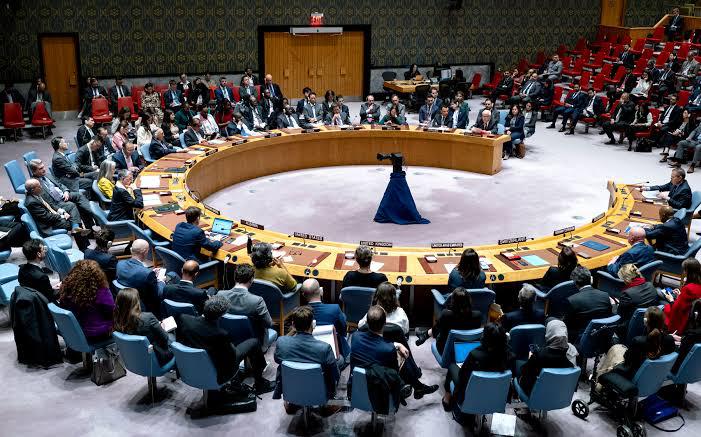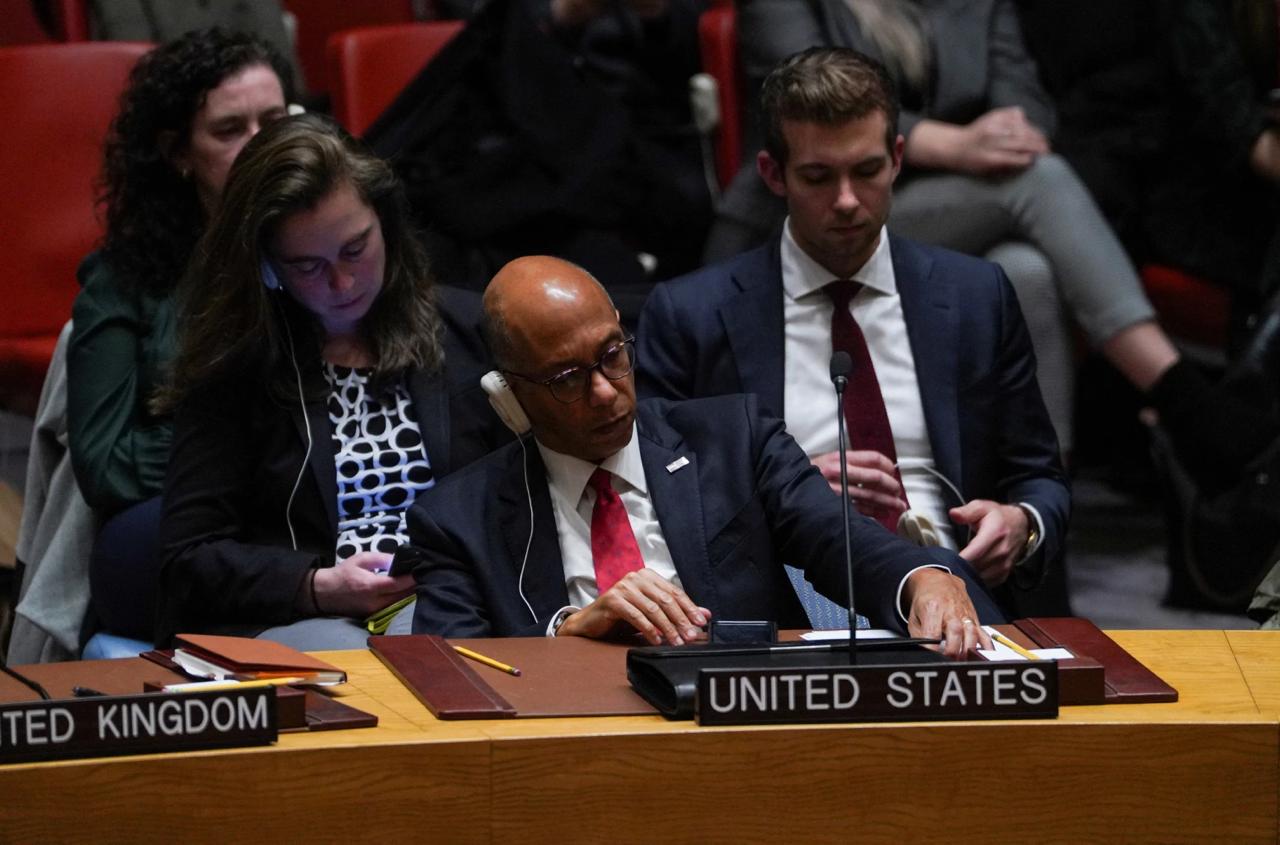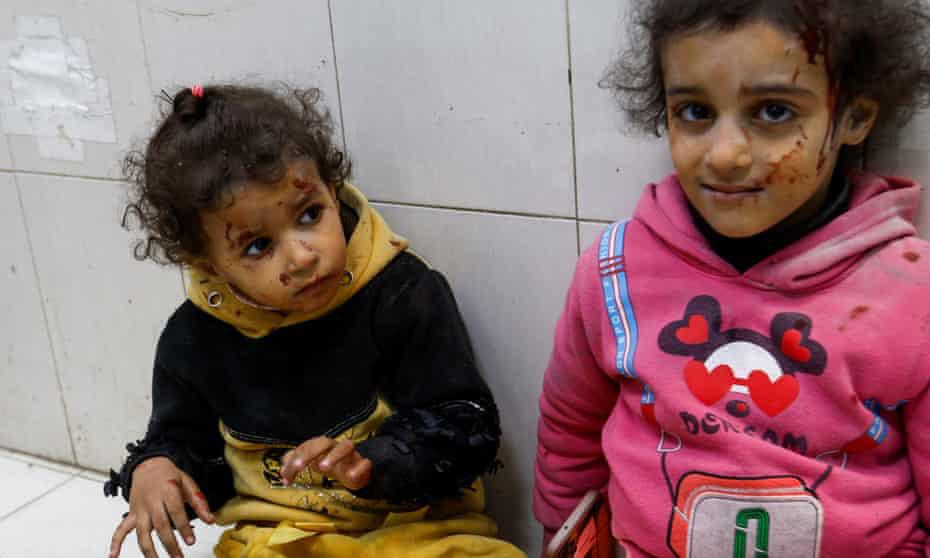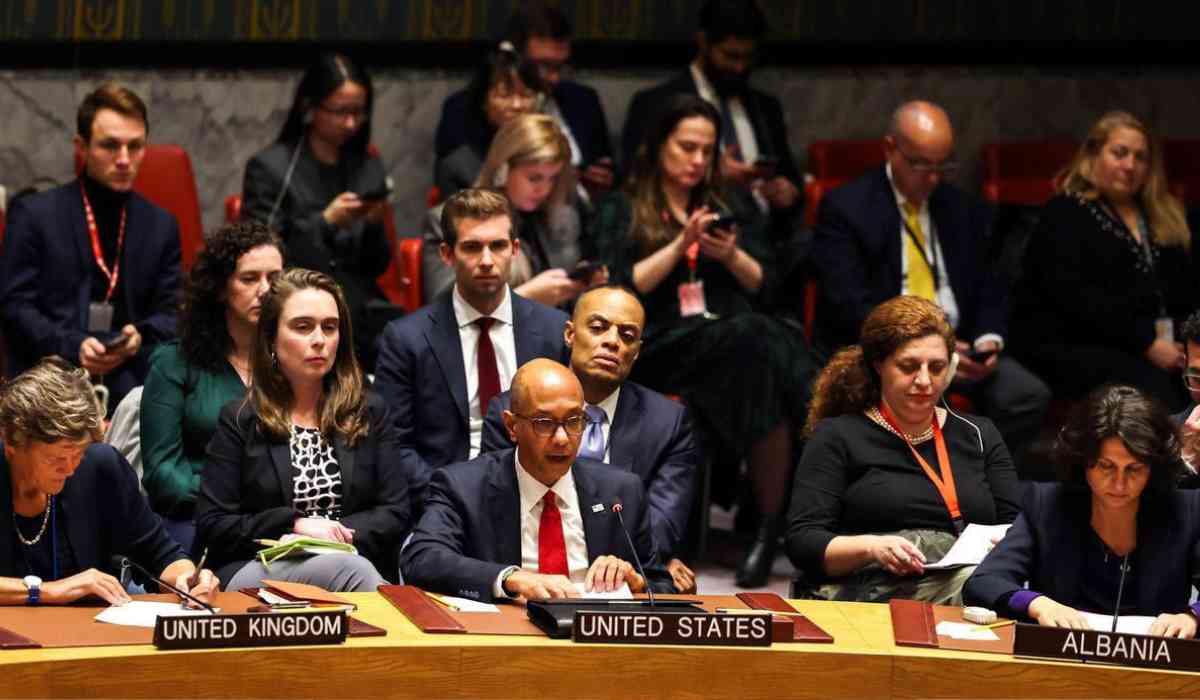Amid Israel-Hamas War, The United States ‘vetoed’ a UN Security Council request for an immediate attempt of ‘humanitarian ceasefire’ in the ongoing conflict in Gaza, while the United Kingdom abstained from voting. Both nations are the permanent members of UNSC.
The US veto contradicted the increasing calls for an immediate ceasefire led by UN Secretary-General Antonio Guterres and Arab nations. 13 out of 15 Security Council members including France and Japan in the United Nations supported a concise draft resolution proposed by the United Arab Emirates on Friday.
Supporters of the resolution have warned of heightened civilian casualties and further destruction as the conflict entered its third month.
The vote followed an emergency UN Security Meeting convened by UN Secretary-General Antonio Guterres, he alerted the 15-member council about the global threat stemming from the two-month-long war.
The UN Secretary-General Antonio Guterres in a rare move to deploy Article 99 of the UN Charter, which allows him to bring "any matter which, in his opinion, may threaten the maintenance of international peace and security" to the council's attention.
In an unsuccessful attempt to urge the Biden administration to change its stance against calling for a cessation of hostilities, the foreign ministers of Egypt, Jordan, the Palestinian Authority, Qatar, Saudi Arabia, and Turkey were all in Washington on Friday. However, their meeting with Secretary of State Antony Blinken occurred only after the U.N. vote.

Photo: AP News
Gueterres Justified his rare move to deploy of Article 99
Guterres emphasised a "humanitarian catastrophe" in Gaza, urging the council to call for a humanitarian cease-fire.
He highlighted widespread Israeli attacks from air, land, and sea. These assaults reportedly targeted 339 educational facilities, 26 hospitals, 56 health care facilities, 88 mosques, and three churches.
Over 60% of Gaza's housing has been destroyed or damaged, resulting in the displacement of around 85% of the population. The health system is teetering on the edge of collapse, and Guterres asserted that "nowhere in Gaza is safe."
Guterres invoked Article 99, which had been inactive since 1971, citing a "high risk of the total collapse of the humanitarian support system in Gaza." He anticipates potential outcomes such as "a complete breakdown of public order and increased pressure for mass displacement into Egypt." Gaza is at a critical juncture, with its inhabitants confronting serious threats of starvation.
Concerning Hamas' actions on Oct. 7, Guterres asserted that their brutality against Israelis cannot justify the collective punishment of the Palestinian people. While acknowledging Hamas's actions, including indiscriminate rocket fire and the use of civilians as shields, he underscored that such behavior does not absolve Israel of its own violations. He emphasized the critical importance of upholding the laws of war.
US's justification of the 'veto'
Washington justified its veto and criticised the resolution's supporters, accusing them of hastily pushing it through and maintaining the call for an unconditional ceasefire.
Robert Wood, the deputy US ambassador to the UN, emphasised the US's strong support for a lasting peace where both Israel and Palestine can coexist peacefully. Wood argued that stopping military action would enable Hamas to continue governing Gaza and could "only plant the seeds for the next war” , given Hamas's lack of interest in a durable peace or a two-state solution.
The US and Israel's stance against a ceasefire is rooted in the belief that such a pause would primarily benefit Hamas. Instead, Washington advocates for temporary halts in fighting to safeguard civilians and facilitate the release of hostages captured by Hamas in a lethal October 7 attack on Israel.

Photo: Nation Thailand
Palestinian diplomats viewed this veto as a 'disgrace.'
Riyad Mansour, the Palestinian U.N. ambassador, asserted to the council that Israel's goal is "the ethnic cleansing of the Gaza Strip" and "the dispossession and forcible displacement of the Palestinian people."
Mansour stressed that being against the destruction and displacement of the Palestinian people necessitates supporting an immediate cease-fire. He argued that refraining from endorsing a cease-fire is equivalent to rejecting the sole measure capable of ending war crimes, crimes against humanity, and genocide.

Photo: Reuters
After the vote, Palestinian officials condemned the U.S. veto of the UN Security Council resolution, describing it as "disastrous" and "a disgrace."
"We reject this result, and we'll continue resorting to every legitimate avenue to stop these abhorrent atrocities," Mansour affirmed.
However, Israel’s Defense Minister Yoav Gallant expressed gratitude to the United States for its "bold leadership." In a statement, he argued that a cease-fire would reward Hamas, neglect the hostages in Gaza, and send a signal to terror groups worldwide. Gallant urged standing with Israel in its mission, emphasizing the fight for the country's future and the free world.
The world expressed disappointment in the U.S. veto.
The United Arab Emirates is deeply disappointed," expressed the representative of the UAE, who sponsored the resolution urging a ceasefire. Unfortunately, the council is unable to mandate a humanitarian ceasefire."
" What message are we sending Palestinians if we can't unite behind a call to stop the relentless bombardment of Gaza?" questioned United Arab Emirates deputy ambassador Mohamed Abushaha after the vote. He further pondered, "Indeed, what message are we sending civilians across the world who may find themselves in similar situations?"
After the vote, Ambassador Nicolas De Rivière of France, expressed deep disappointment at the U.S. veto. He warned that the Security Council is growing isolated and "appears untethered" from its mandate to ensure international peace and security. De Rivière pleaded "for a new, immediate and lasting humanitarian truce that should lead to a sustainable cease-fire."
Russia’s deputy U.N. ambassador Dmitry Polyansky called the vote "one of the darkest days in the history of the Middle East" and accused the United States of issuing "a death sentence to thousands, if not tens of thousands more civilians in Palestine and Israel, including women and children." He stated that "history will judge Washington’s actions" in the face of what he called a "merciless Israeli bloodbath."
Amnesty International’s Secretary General Agnès Callamard criticized the U.S. for continuing to transfer munitions to the Israeli government “that contribute to the decimation of entire families.”
Louis Charbonneau, U.N. director at Human Rights Watch, said that by providing weapons and diplomatic cover to Israel “as it commits atrocities, including collectively punishing the Palestinian civilian population in Gaza, the U.S. risks complicity in war crimes.
As per the Health Ministry in the Palestinian territory, Israel's military campaign has led to over 17,400 deaths in Gaza, with 70% comprising women and children, and more than 46,000 individuals wounded. The ministry does not differentiate between civilian and combatant casualties. The revised official death toll in Israel is approximately 1,147, contrasting with at least 17,487 Palestinians killed in Gaza since October 7.
©️ Copyright 2023. All Rights Reserved Powered by Vygr Media.
























